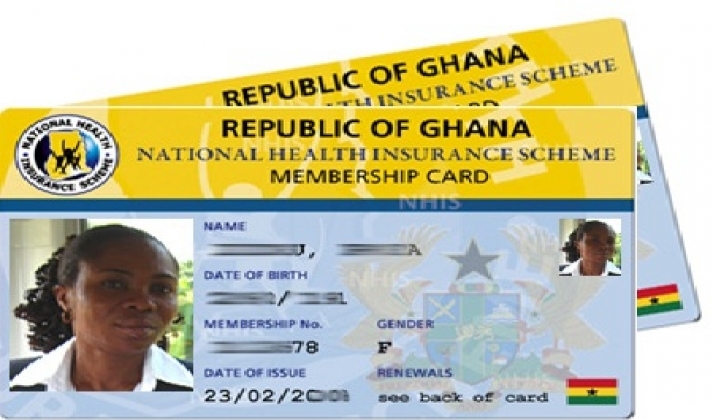
The Ghana Health Service (GHS) has asked service providers under the National Health Insurance Scheme (NHIS) to continue to accept patients with NHIS cards as it is still in the process of finding ways of reimbursing them.
This followed a meeting in Accra yesterday involving the Deputy Minister of Health, Dr Victor Asare Bampoe; the Director General of the GHS, Dr Ebenezer Appiah Denkyira; the chief executives of the various teaching hospitals, the National Health Insurance Authority (NHIA) and the Society of Private Medical and Dental Practitioners.
“Taking into consideration the challenges facing the NHIS which are being addressed, I wish to direct all medical facilities under the Ghana Health Service to continue to accept the NHIS card for service delivery.
“I wish to use this opportunity to inform all stakeholders that government is taking the necessary steps to address the challenges facing the scheme in the shortest possible time,” a statement signed by Dr Denkyira to all Regional Health Directors said.
Recall
Early this week, the Christian Health Association of Ghana (CHAG) and the Ghana Health Service (GHS) issued a threat to suspend the issuance of medicines to NHIS subscribers.
Dr Denkyira, who confirmed this to the Daily Graphic, said although the hospitals would attend to patients, they would not be offered medicines.
He said some of the facilities had been taken to court for owing the pharmaceutical companies, adding that the companies had written to the GHS that they could no longer give credit facilities.
MoH directive
In a related development, the Ministry of Health has assured the general public, especially National Health Insurance cardholders, that “irrespective of the current challenges facing the scheme, it is still a national health financing policy which seeks to provide quality health care to the vulnerable in society”.
It said notwithstanding the various challenges currently being faced by the authority, “we are collaborating with the other agencies in the health sector to ensure quality health care”.
A press release signed by Mr Tony Goodman, the Public Relations Officer of the ministry, said providers agreed during the meeting that all would endeavour to accept the National Health Insurance card wherever possible.
Parties at the meeting, it said, pledged their efforts to guarantee the long-term sustainability of the health insurance scheme and their passion to build a world-class health insurance scheme.
Issues at stake
The NHIS owes service providers arrears covering six to eight months.
The Minister of Finance, Mr Seth Terkper, on the floor of Parliament on March 3, 2015 said the ministry had remitted more than GH¢1.6 billion into the operational accounts of the National Health Insurance Fund (NHIF) for the 2013 and 2014 fiscal years.
Mr Terkper said the government paid GH¢828.4 million and GH¢1.06 billion into the NHIF account in 2013 and 2014 respectively, for the payment of claims of service providers.
He said the delays were not deliberate, adding that the accumulation of arrears was not solely dependent on releases.
According to him, the occasional “ups and downs” that the economy went through were to blame, adding, however, that payments were being made while some of the arrears were being cleared.
Problems
On February 13, this year, hospitals in the Volta Region threatened to return to the ‘cash-and-carry’, system if the NHIA did not pay monies owed them within 30 days.
Also on February 27, the Upper East Regional Directorate of the GHS hinted that the ‘cash-and-carry’ system was looming in the region, and warned that hospitals would have no other option than to reverse to the system in providing health care to their clients if the NHIA failed to settle its arrears.
Members of the Christian Health Association (CHAG) on July 1, last year withdrew their services to subscribers of the NHIS because managers of the scheme owed the mission hospitals in excess of GH¢50 million.
There are 183 mission hospitals in the country which cater for about 42 per cent of the healthcare needs of the people, especially those in deprived communities.
In July last year, the Ghana Chamber of Pharmacy nearly cut supply of medicines to health facilities that depend on the NHIS to pay for their medicines.
Source: Graphic Online


